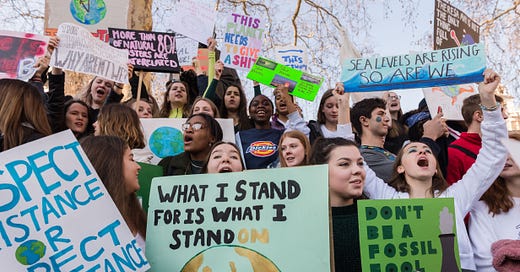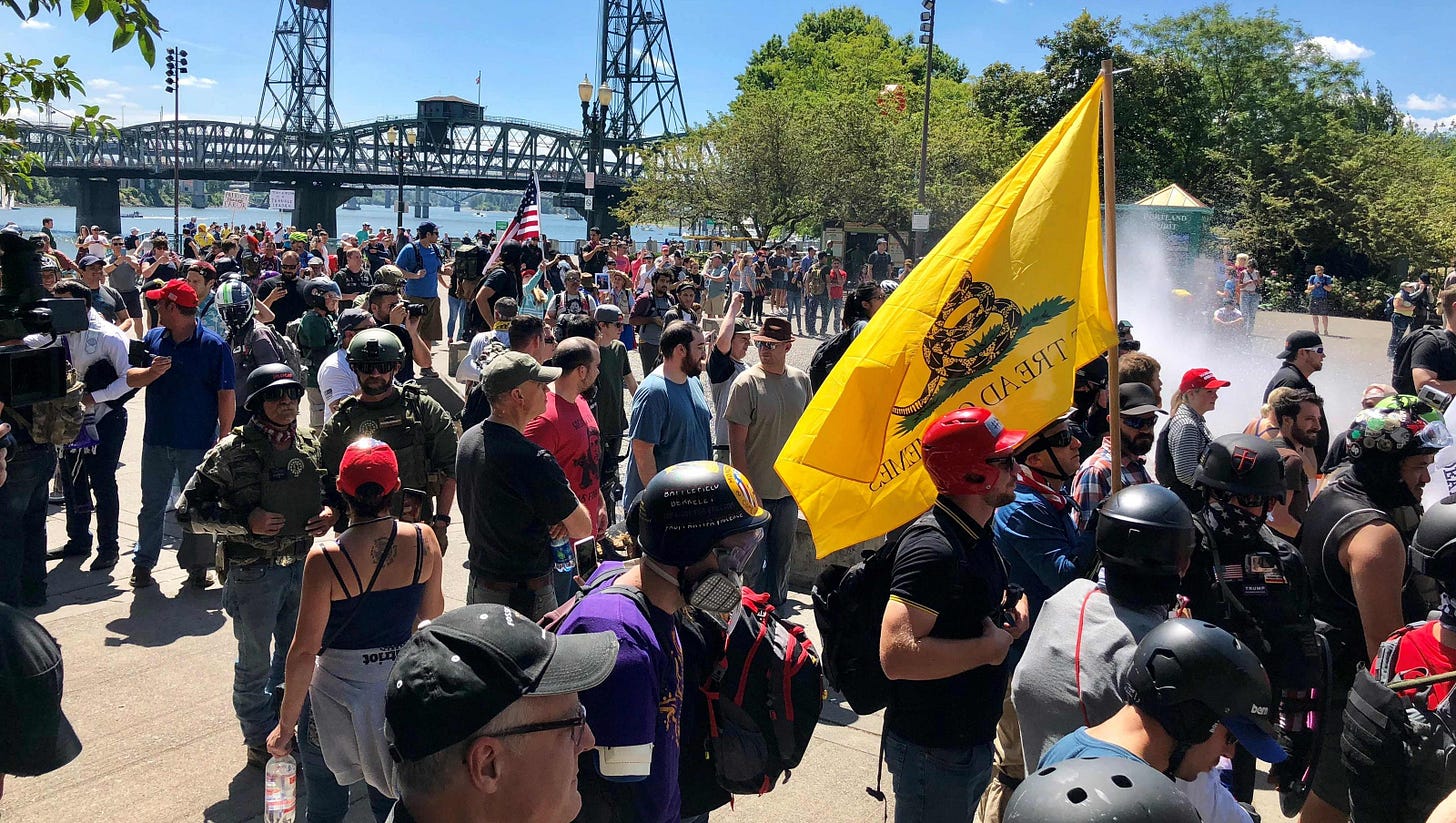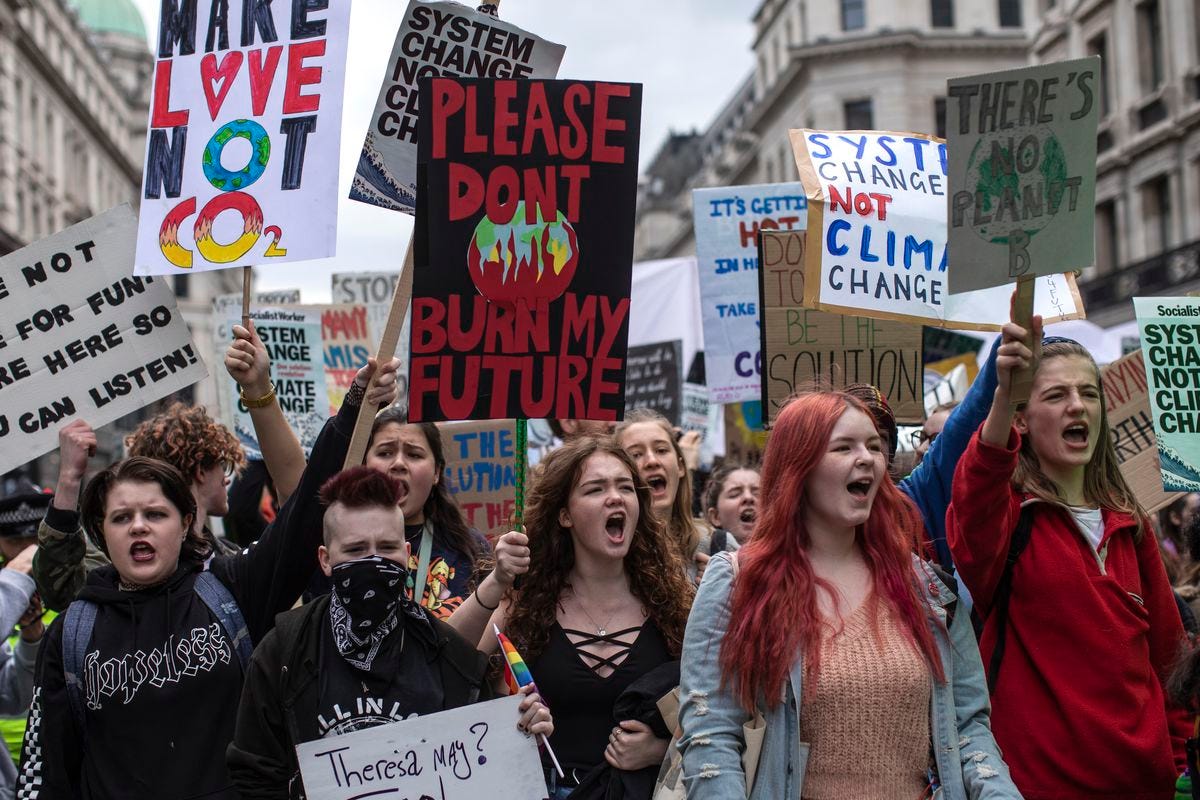Why youths should not be heavily involved in politics
Do not make the same mistake that I made!
Ever since the late 1960s, a substantial portion of youths have been heavily involved in politics. This is often presented as a good thing for society because the youth inject idealism and energy for change in an otherwise complacent society. I disagree. I believe that getting heavily involved in politics is one of the worst things that youths can do both for themselves and society.
To be clear on my definition, I define youths as ages 14-29.
Now let me be clear. I am not saying that youth should not vote or occasionally follow important current events. In this article, I criticize the relatively small minority of youths who are heavily into politics. I have not seen any definitive data, but let’s say it is the 5-20% who are most politically active in their daily lives.
By politically active, I mean:
Constantly discuss politics with their peers.
Regularly read or watch news and political content.
Participate in rallies.
Donate money to candidates or interest groups.
Volunteer for political campaigns or ideological organizations.
My sense is that the vast majority of these politically active youths are on the Left, particularly to the left of the Democratic party. There is a small group of activists on the Right and Libertarians, but they are clearly in the minority.
Full confession: I was very involved in politics and public policy from age 15 to 33. Hence the sub-title of this article: “Do not make the same mistake that I made!”
So why shouldn’t youth be politically active?:
Youths know very little that older adults do not already know. Youths are just repeating what other adults told them. Few youths have yet had the life experiences to develop their own opinions based on their interactions with reality. Typically youths just repeat what their parents, their teachers, or the media told them. Ideology stems from non-rational psychology, and this is particularly strong among youths.
Youths are easily manipulated by charismatic political leaders. Old politicians are masters at manipulating the naive. Youths, particularly young women, are their easiest target.
Youths too easily focus on good intentions and do not realize that implementing their favored policy often leads to results that are the opposite of their original intentions. Policy outcomes are very complex, and they typically have results that are far from the original intention.
To build a successful and happy life, youths need to focus on what they have control over. Politics does the opposite. In particular, youths need to focus on making wise Life Choices that will affect the trajectory of the rest of their adult lives.
Bad decisions made before age 30 can sabotage your entire life. And letting life decisions slide by is almost as bad.
The first three points explain why youth political activism adds very little value to society (and probably hurts society). The last two points explain why youth political activists are bad for the individual youths themselves.
Any adult who encourages youths to participate heavily in politics is at best naive and is more likely trying to promote their own dysfunctional beliefs. I have yet to hear an adult encourage youths to get involved in a political movement that the adult disagrees with.
Focus on what you have control over
A key part of long-term success for both youths and adults is to:
Focus on what you have control over,
Adapt to what you do not have control over (which is most things)
Virtually everything in politics is about the latter.
So what should youths focus their efforts on?
Time is inherently zero-sum. Youths must use their time before age 30 wisely on tasks that matter to themselves and society. It is critically important that youths focus their efforts on becoming productive adults who can:
support themselves
support their future families
contribute to society.
In other words, youths should focus on promoting their own Upward Mobility. And by doing so, they can contribute to future material progress. Occasional political activity by youths is not necessarily incompatible with these efforts, but an incessant focus on politics is self-destructive and socially destructive.
To promote their own Upward Mobility, youths should focus their efforts on following what I call the Pathway to Success:
Graduate High School.
Complete post-secondary education/job training to learn practical skills that enhance your long-term earning power.
(if you live in an area with few opportunities) Move to a metro area with much greater opportunities.
Work full-time.
(If you have children) Get married and stay married.
Save and invest at least 10% of your income.
All of the above is very time-consuming. Then once a youth is well on their way to promote their own success, they can learn the intricacies of public policy and start giving advice to others about how we can make the world a better place.
But not until then!
The good thing about focusing on Upward Mobility is that doing so actually promotes material progress for others. Progress, unlike political activism, is not zero-sum. When youth focus on promoting their own Upward Mobility, they are actually taking the most effective action to create a better world.
See more free articles on Upward Mobility:
I also will be writing a significant number of excerpts from my forthcoming book: Upward Mobility: A Radical New Agenda to Uplift the Poor and Working Class. Most of these excerpts will only be available to paid subscribers.
Other books in my “From Poverty to Progress” book series:










The youth is not giving advice to others about how to make the better place. The youth is politicised because the world is not serving the youth’s interests.
Not that the youth is actually politicised — I find your estimate very high — but anyway...
A very short distance from this to arguing that no one should bother with politics because they are not smart or mature enough. Who is?